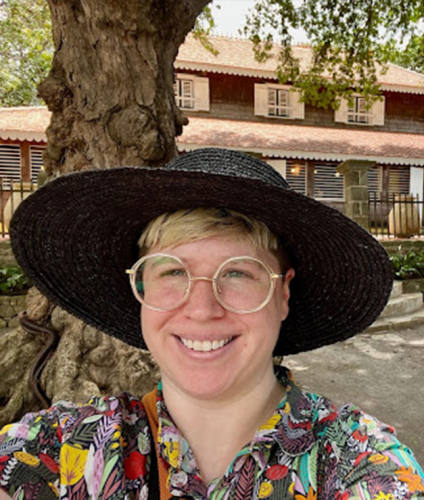
Dani Ezor specializes in the material culture of exchange in the early modern French Empire, with a focus on gender, race, and colonialism in the long eighteenth century. They teach courses on Latin American and Caribbean art, race and colonialism, and ecocritical approaches to art history in the early modern era as well as the Introduction to Western Art: Renaissance to Contemporary. They previously taught at Texas State University, San Marcos and Southern Methodist University, where they received their Ph.D. in 2023.
Ezor’s research focuses on the materiality of luxury goods, such as porcelain, lacquer, silver, tropical hardwood, cotton and tortoiseshell. They are currently working on their first book project: "Whiteness at the Dressing Table: Race, Gender, and Materiality in the Eighteenth-Century French Caribbean and France." In this book, Ezor uses ecocriticism, theories of the object and post-colonial theory to examine the materials and objects of the toilette table in the French Caribbean and France prior to the French Revolution. They argue that the objects and consumables of the toilette table not only allow for but actively construct white femininity often at the expense of forced Black labor. Ezor published an excerpt of this project as an article with Journal18: “‘White when polished’: Race, Gender, and the Materiality of Silver at the Toilette Table.” This research has been supported by Wellesley College, the Newberry Library, the American Society for Eighteenth-Century Studies (ASECS) and the Decorative Arts Trust. Other interests include print culture, the art of the book, queer art and queer theory, and contemporary Black art.
Areas of Expertise
Eighteenth-century French empire; colonial Latin America and the Caribbean; race and postcolonialism; early modern exchange
Education
2023 — Doctor of Philosophy from Southern Methodist College
2016 — Master of Arts from Williams College
2013 — Bachelor of Arts from Wellesley College